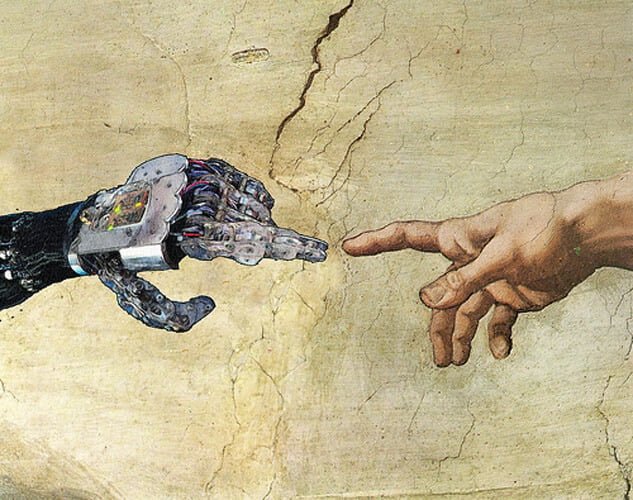A story of David and Goliath is also a story about localism in action.
Overcoming the odds
Michelangelo Merisi da Caravaggio
Judith, 1598
Palazzo Barberini, Rome
What started out as a means of resistance by a small collection of individuals against a global system of industry dominated food,has blossomed into a resilience that can be observed and experienced on a daily basis in many western industrial nations. This arose during the 1980’s in the USA and in Europe as a result of the infernal hell of the industrial food complex. These individuals have changed and created many a community of whom its supporters are choosing local over the directives of global entities or corporate influence. Localisation in it’s true definition, was and remains a social and political movement that took on the opposing global industrial food system that has failed us. It is timely that June 21st 2023 has been claimed as an International Localisation Day. Yet despite the successes of this movement we are presented with a new challenge. This is we believe the time for participants of the localisation movement to identify its enemy and take localisation into a new era.
There’s no questioning the sheer scale and size of this system – it operates on over 75 percent of the world’s agricultural land, using 90 percent of the fossil fuel energy, and 80 percent of the water – but it only feeds 30 percent of the world’s population
Farmers Markets erupted in a time when industry dominated our food landscapes and dictated how we farmed food and how we could access it. Its negative effects are everywhere and today we experience the downstream effects which go far beyond just food. We are captured by the centralisation of much of what we do and the language we use to navigate our way through life, as are those who proport to protect us
Our regulators have been captured by those companies they were established to regulate, and Big Pharma is more powerful, profitable and prolific than at any time in human history.
Aided and abetted by our own levels of consumerism, corporations and industries have experienced unprecedented growth, power and marketing influence over many aspects of our lives. On a global scale it has become apparent to many that we have become so influenced and dependent upon these systems of industrial corporate control that many of us would struggle without them or struggle to recognise their sinister influence.
Localisation at a grass roots level has been the canary in that goldmine. Yet despite attempts by industry to capture the localisation movement they have largely failed simply by how they define it. They may see it as something to market and profit off by manipulating us with their Green and Ethic washing but they can and never will capture the essence of what the localisation movement is about nor fool its customers for too long.
Despite the positive pushback by the localisation movement and others, outside, it is increasingly hard to ignore and navigate around the vortex of issues that loom down upon us. Doomsday prepping once the prerogative of end of the world scenarios by some religious organisations is now factored into institutions and industries long term projections which are then marketed to promote a new form of consumerism.
Take corporate social responsibility. Today this is a way of doing business in many industrial nations; one that aims to improve a company's social impact by adopting a unified systems approach which use gender inequality and climate change to distract us from the problems with centralisation, more often than not at the same time as increasing growth and revenue for those at the top. It also helps industry when words of value are bastardised by marketing ploys in attempts to trick us. Changes in meaning operate like a form of sophistry. Future projections for 2030 or 2050 in real life transpire as green washing and ethic washing techniques to fool and capture us consumers in the present.
The prophecy for the future of food for 2030 or 2050, subject to ones preference, is being nutted out in many institutions and industries today. Here in Aotearoa New Zealand, Ministry of Primary Industries have envisaged the future of food in their Future of Aotearoa New Zealand Food Sector. With a sweep of a Environment Social Governance systems brush we can expect a future of food that has a significant reliance on digital tech, and production of GE foods which MPI claim have enormous support from the younger generation. Our lives as part of the 4th Industrial Revolution, will embrace AI gadgets and gimmicks which will cater for the influx of people into the intensive living cities. With the usual stakeholders in the industry pushing for more GE and Bio Tech and AI we can also expect to see the increasing effects of these industries upon other sectors like agriculture, medicine and health to name a few.
So by 2030, (WEF) think it is realistic to say that biotechnology will become a part of our life, from drugs, medicine and therapeutics to environmentally friendly chemicals, fuels and materials.
Big Pharma features in many of our lives already and not always for the better. With its appalling track record in genuine health care as a result of prescription drugs they continue to successfully lobby governments. The controversial Therapeutic Products Bill currently before the select committee is a current example of how influential the pharmaceutical industry thinks it is in directing consumers choice.
The World Health Organisation also looks to the future with proposing sweeping and controversial changes to the World Health Regulations for 2024. Changes that look to make a centralised source of governance over countries autonomy regarding how they respond to health crisis like another pandemic.
Critics blame the free market economy for the overinflated dominance of industries and are calling this failing system a form of corporate socialism. In short, it's a system where big corporations keep their profits, but the taxpayer suffers losses and so much more.
Many of us have consumed a lot of things we could really have done without in our lifetimes. Which makes us part of the problem.
Consumers of food ie those who do the purchasing world wide, are predominately women. Women also make up the bulk of the customers and operators of small businesses in the localisation movement. As well as being the main shopper they also do most of the housework and indeed remain the main caregiver of children and increasing numbers of of them are home-educating.
According to the International Monetary Fund if as many women as men worked or sought work the economy could increase its economic output by 35%.
Feminists, Mary Harrington contends, failed to grasp a more subtle social transformation triggered by the Industrial Revolution. The modern market economy required uprooting people from the communal pre-modern order and re-fashioning them into “atomized trading partners. Both men and, eventually, women, were to be regarded as fungible interchangeable work units.
Liberal feminism catered for women who wanted what men had. Economic freedom. This wave of feminism took off around the time the contraceptive pill appeared. Such was the success of feminist rhetoric by the liberal feminists that many appear to have thrown the baby out with the bath water. The fact that it might be someone else’s baby doesn’t seem to bother them.
The contraceptive pill, Mary Harrington claims, was the first step in transhumanism.
The pill debuted 60 years ago. It was a game changer. Since the contraceptive pill women have become an integral part of the paid workforce. Women and men’s lives changed as did birth. Across many cultures the freedom to control ones biology has challenged and is challenging how we operate as a family.
The contraceptive pill is one of the most widely used pharmaceuticals on the planet. 3.1 million British women use it, making it the most common prescribed contraceptive. It works by mimicking the hormones released during pregnancy, and its main hormonal component is a synthetic oestrogen known as 17α-ethinyloestradiol - a compound that is disastrous for aquatic life. Its presence in rivers and groundwater disrupts the endocrine systems of a range of species, causing intersex conditions in frogs and fish and severely harming their ability to reproduce. It is also difficult and expensive to clean from waste water.
Bio-tech is increasingly becoming a big industry. No doubt there are benefits. However the downstream effects of controlling our biology, changing it, playing with it at worst look to have enabled a growing line of thought that devalues the significance and value of the biological differences of women and men. Today some men and even boys with women’s backing, look to wanting what women have; their biological destiny. To even imply that biological sex exists or it might serve a purpose in our evolution is increasingly becoming regarded as offensive by some.
The biotech, GE and AI industries that support transhumanism have New Zealander Dr John Money to thank. He was regarded a pioneer in sexuality and gender. In the wake of creating the social construct of the word ‘gender’ in 1955 changing it from its original meaning, which was biological in essence, he founded the first gender identity clinic at the John Hopkins University in Baltimore amidst the women’s liberation movement of the 60’s. He gained an appalling reputation resulting from his gender changing experiments. Yet this belief that gender is not biologically determined is upheld and taught in a wide range of contemporary settings from primary schools, universities, charitable organisations that influence cultures in developing nations and many western industries. Addressing inequality between the sexes as an issue of gender does not address sexism. Once again it is a form of sophistry.
If the pill was transhumanism then transhumanism is anti feminist, as if feminism has any humanism left in it. Without humanism and an increasingly unregulated undisciplined industry of pharma, bio-tech and digi-tech we can expect to see rampant exploitations in our communities. The womb was medicalized, sperm became legal tender and surrogacy enabled children to become marketable commodities. When the creche became the family, and boys and girls could choose their sex depending upon market preferences and pregnant people could claim a kind of couvade during their inequitable inability to chest feed then it is a very short trip from there to the intensive surveilled hell of the 15 minute city and probably an even shorter one from there to the doped out turnover of the retirement village. Some might call this Total Industry capture.
You can’t have transhumanism without throwing out humanism claims reactionary feminist Mary Harrington.
To aide and abet such dystopic predictions, New Zealand currently has half of marriages ending in divorce and an extraordinary predicted high worldwide by the OECD of 75 % NZ single mothers by 2030. Families in industrialised nations are it appears continuing a demise that started some time ago. The family is going out of fashion in the old sense and is morphing into something else as birth rates plummet around the world. Even the infamous WEF has them catered for in their world in their new disguise .
Remaining families are in for a rocky ride if future projections are to be believed. They have already experienced a hard time navigating the changes in society since the industrial revolution. We are experiencing the demise of the family which has always struggled to survive in economically uninhabitable, hostile environments, ones they were not equipped for.
Reactionary feminists claim the second wave of feminism has let women down big time.
The lack of revolutionary character and the dominant feeling of complacency about the prevailing oppressive structures end up being attractive to the elitist interests that underpin capitalism.
Women who are complicit in biological denial and when using their elitist positions on the back of a feminist movement which sought to emancipate women in society, have only exposed their willingness to abuse their new found power. By supporting industries and social policies that only feed into corporate gains that ultimately subjugate women’s role within the family and devalue that role by allowing men to own it, they trivialise women’s biological choices. These women and those men effectively undermine the family in Aotearoa New Zealand. Diversity Equity, and Inclusion are at their worst, useful tools to enable this.
Whereas DEI and ESG in theory look like a systems approach to address a predicament that unnatural working environments have created they are also being seen as a systems approach that operates like a social credit system. These constructed social norms that propose to change our western culture values look like a desperate kind of death throw of a declining culture. This system attempts to work as a means of managing human behaviour which is also subject to market forces. These issues enable government policies that support their cause to be adopted willy-nilly, with little democratic input from the people who voted them in. With the USA in decline the balance of power is shifting, but to what.
Without a doubt we are in a predicament as a society, as a culture whoever you identify with, and as community and as a family and as women and as men.
To not be aware of this trajectory we are on at the hand of corporate control would be like a farmer sowing his frost tender crops before a snow fall.
Resilience is a push back by the people. It is made up of unique ingredients; like ethics, values, principles and loyalty. These things are not easily captured by the corporate industry as much as they try. Some things cannot be captured by the market. Some things remain beyond the market reach and beyond the theory that reductionists mechanistic inhumane understanding relies upon. These special characteristics are normally associated with small closely knit groups of people who are independent of large organisations.
Traits like honesty, empathy, or any other of the admirable qualities we strive to exhibit in our daily lives first emerged as tools of survival in enduring kin and small group relationships. Habits of cooperation and loving care were born in small settings and need small settings to remain operative. The everyday operation of big institutions – national governments, global corporations – habituate us to resentful subservience and anxious money-grubbing.
Just as others have their 2030 or 2050 predictions so too should the localisation movement. It need not be a pessimistic one or a compliant one. But it needs to be a vigilant one. It needs to be aware of the corrosion within; from those with a centralised incentive be it an economic or ego driven purpose.
Action or purpose at a local level matters in times like these. To ignore the reality is to risk being overwhelmed by the load of worldly concerns. Our best attempts to get out of bed in the morning or hold a meaningful conversation with someone let alone make food for others could become compromised in the face of adversity. Instead a level of awareness may help us in the predicament we find ourselves in. The success of the localisation movement could be in part because of the realisation that Everything with a capital E is interconnected, and no problem is therefore beyond consideration in how things are. It is this bigger picture appreciation that has been called Big Picture Activism and envelopes food to health, spirituality to community.
From farmers markets and consumer-producer co-operatives to local business alliances and community finance schemes, people are reweaving the fabric of local interdependence from the ground up. Out of common sense and heartfelt intuition, they are finding innovative ways to step out of the consumer rat race to live local lives at a human pace and scale.”
Helena Norberg-Hodge, Founder - Local Futures
Big picture activism has been mooted as the answer to globalisation. It makes clear that our problems have both an inner and an outer dimension, and that solving them requires working on both levels. This includes environmental and social issues.
The Inner path is your personal journey, as in be the change you wish to see in the world. Practice what you preach. Open your mind. The Outer path is your attempts to address these issues like the groups you work with and the community you support, without too much politics that just ruin everything!
We cannot deny that localisation is operating under an industrial cloud. But in contrast to the battle with nature that the industrial complex has, localisation embraces nature and all its supernatural forces. Localisation embraces community, land, health and independence. It is not up for sale. It’s existence is dependent upon de-centralisation.
The common problem with a lot of industries is their relationship and their understanding of the natural world. The existence of biology it would seem continues to be a hindrance to progress and greed. It needs control. Who better to do that than the global industries who already control much of that which is natural like medicine and food.
Ever feel like you’ve been cheated?
Sid
“Ever Get the Feeling You’ve Been Cheated?” was the question asked by lead singer of the then, infamous, Sex Pistols lead singer Johnny Rotten (John Lydon) on 14th January 1978 at the end of the band’s appearance at the Winterland in San Francisco that concluded their US tour. Lydon’s frustrations were borne of his sense that he was part of something that no longer had authenticity. Anyone who has ever considered what emerges naturally will be amazed at the way ideas evolve and the latent energy that accompanies the excitement of change. It is significant that the last song of the set was a version of Stooges classic “No Fun”.
Hell have no fury they say, than a woman scorned.
‘Scorned’ here means ‘slighted’, ‘ridiculed’, ‘spurned’, or shown contempt or disdain. A woman who has been treated in such a scornful manner is capable of such anger that even hell, the fiery seat of evil, cannot match it for its destructive power. Women need to reject market forces and reclaim their autonomy over their bodies and their families.
The predicament. We need to reclaim the language that is of value to us; family, Whanau, community, natural, organic and local. These are words that do not belong in corporate or government language. Localisation needs to reclaim what has been captured. A new age of Localisation? Downstream of the globalised industrial complex doom prepping there are already those who are revitalising the old Localisation movement. It’s always been a David and Goliath story. It started with the awareness that big food was destroying little food and our health, it took on the megalithic industrial food complex. Like then, individuals have realised the systemic problem with centralising of industry and its permeating presence in our lives. A presence that stifles the ability to make informed choices and make sound decisions in all aspects of our lives from food to farm, trade to leisure. This realisation is encouraging individuals to act, create support networks and strengthen communities with efforts that push back on the centralisation of everything we value.
This new age of Localisation for now and the future calls for us to become engaged and concerned in order to bring about a peaceful, broad-based, systemic change. This is a parallel system that operates alongside, outside and even within the existing centralised industrial paradigm. Localisation is possible at a local governance level or a regional level.
It requires us as people, as businesses, trades, health providers, teachers, as community, as councils to be independent from centralised decision making.
New Age Localisation needs a manifesto for the longer term if localisation is to keep a step ahead of capture by centralisation.
To use global market terminology, industry has provided localisation with an opportunity. It has given birth to what many consider a natural evolutionary response in times of crisis.
It requires us to become SIN. Skilled up, independent and in harmony with nature.
We can embrace a holistic approach that moves beyond single issues. This is no retreat to agrarian lifestyle, or a rejection of modernity nor a remnant of 60’s communes. This is about using tech smartly rather than it using us, its about listening to nature in terms of medicine and food resilience, it’s about trade exchange, and healthy communities and evolutionary purpose. It’s about living smartly and looking after those around us whose futures we care about. It’s about rejecting the market forces that undermine who we are as humans.
Ghandi: Be the change you wish to see in the world.
There are links within the text which may relate to the references below which are in no particular order.
April 2023
https://www.merriam-webster.com/dictionary/gender
https://www.spiked-online.com/2023/02/05/dr-john-money-and-the-sinister-origins-of-gender-ideology/
https://www.localfutures.org/big-picture-activism/
https://www.localfutures.org/unpacking-the-word-peasant/
https://www.thebalancemoney.com/corporate-social-responsibility-csr-4772443
https://www.localfutures.org/rude-music-empathy-and-the-case-for-localism/
https://www.who.int/news-room/questions-and-answers/item/international-health-regulations-amendments
https://geo.coop/articles/global-movement-localization
https://www.worldbank.org/en/news/feature/2021/03/16/a-roadmap-for-building-the-digital-future-of-food-and-agriculture
https://ifstudies.org/blog/feminisms-failures
https://www.britannica.com/topic/transhumanism
https://www.goodreads.com/book/show/197084.Are_You_My_Mother_
https://interestingliterature.com/2023/04/hell-hath-no-fury-like-a-woman-scorned-meaning/
https://www.weforum.org/agenda/2023/04/workforce-gender-gap-crisis/
https://www.weforum.org/agenda/2016/05/what-will-the-family-of-the-future-look-like
https://en.wikipedia.org/wiki/Protestant_work_ethic
https://www.oecd.org/futures/49093502.pdf
https://www.tsi.nz/news-recent/food-system-transformation-in-aotearoa
https://www.weforum.org/communities/shaping-the-future-of-food https://www.mpi.govt.nz/dmsdocument/55306/direct
https://www.oed.com/viewdictionaryentry/Entry/77468
https://www.nzherald.co.nz/nz/rising-prices-hit-kiwis-explore-the-data-behind-the-cost-of-living-crisis/PVEUNYFUN5BXBFVSK7M4OFK6ZE/
https://www.nopharmfilm.com/
https://fermentofeminista.medium.com/liberal-feminism-the-strand-that-keeps-us-tied-to-the-patriarchy-bcc3215b9359
https://www.weforum.org/agenda/2016/12/what-is-biotechnology-how-will-it-change-our-lives/?DAG=3&gclid=CjwKCAjwge2iBhBBEiwAfXDBRy4LSePLTN8IeHVRIuRVdf2VKakdROkuTtty0F-rLg5lj2M-piS-XBoCkNsQAvD_BwE
https://ssir.org/articles/entry/the_problem_with_tables

























